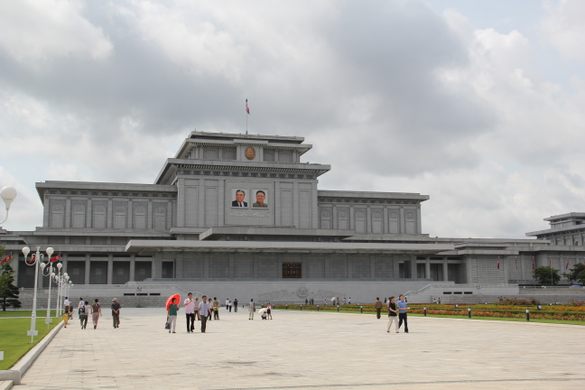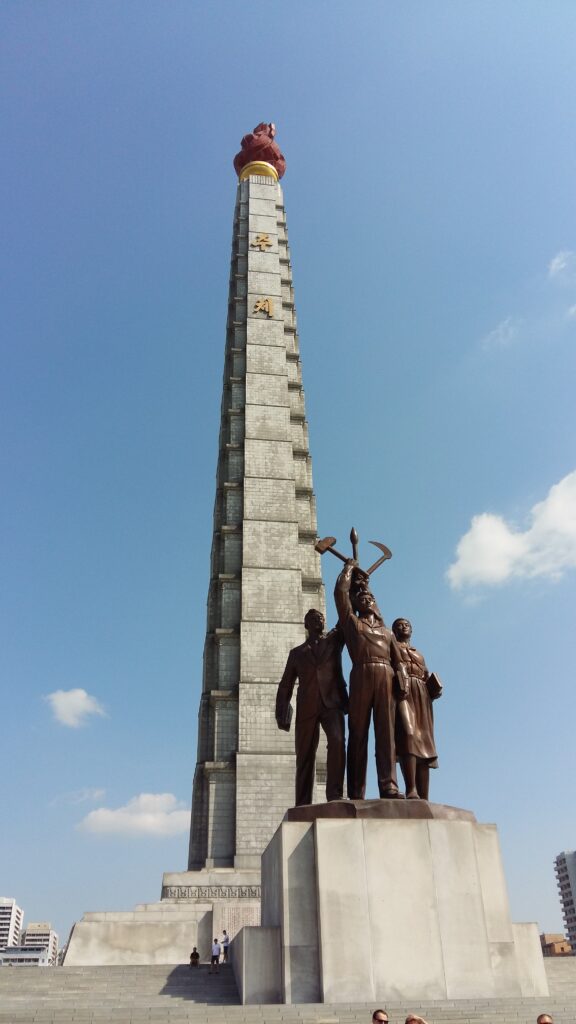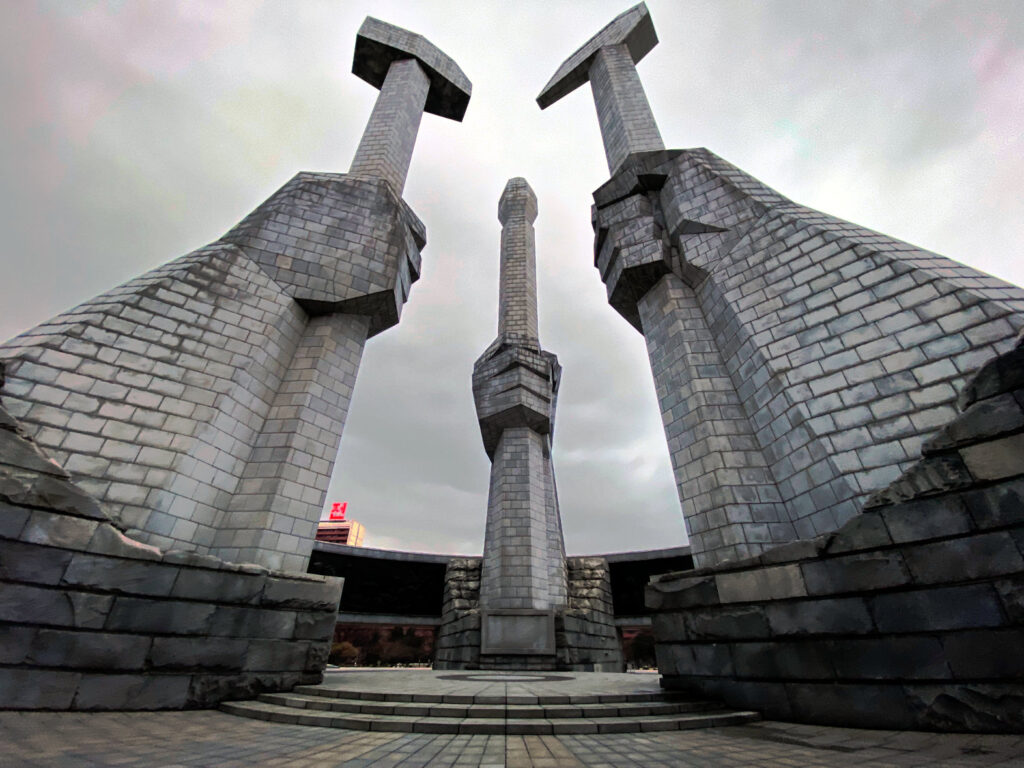


Kumsusan Palace of the Sun:
Juche Tower in Pyongyang:
These structures are significant in North Korea’s political and cultural landscape, representing the country’s emphasis on self-reliance and sovereignty
The Juche Ideal, a guiding philosophy in North Korea, has played a significant role in shaping the country’s political, social, and economic landscape. Developed by Kim Il-sung, the founding leader of North Korea, the Juche Ideal emphasizes self-reliance, independence, and national sovereignty. This essay explores the origins, key principles, and impact of the Juche Ideal on North Korean society, shedding light on its influence on governance, culture, and international relations.
The Juche Ideal emerged during the 1950s a response to the challenges faced by North Korea, including the Korean War and the subsequent division of the Korean Peninsula. Kim-sung sought to establish a unique ideology that would guide the nation towards self-determination and liberation from external influences. The termJuche» translates toself-reliance» and encapsulates the core principles of the ideology. At its core, the Juche Ideal emphasizes the primacy of the individual, asserting that people are the masters of their own destiny. It promotes the idea that individuals should be self-reliant, both economically and politically, and take an active role in shaping their society. The Juche Ideal also emphasizes the importance of national sovereignty, advocating for an independent and self-sufficient North Korea free from foreign interference.
In North Korean society, the Juche Ideal has influenced various aspects of daily life. promotes a strong sense of nationalism and loyalty to the state, with citizens expected to prioritize the collective over individual interests. The ideology is deeply ingrained in education, media, and cultural institutions, shaping the narrative of North Korean identity and reinforcing the regime’s authority. Economically, the Juche Ideal has driven policies aimed at achieving self-sufficiency. North Korea has pursued a policy of «Juche economics,» focusing on domestic production and reducing reliance on foreign aid and trade. This approach has led to the development of heavy industries, agriculture, and technological advancements, albeit with mixed results due to international sanctions and limited resources.
The Juche Ideal has also shaped North Korea’s foreign policy and its stance on international relations. The philosophy emphasizes the pursuit of an independent foreign policy, often characterized by a confrontational approach towards perceived threats to the nation’s sovereignty. North Korea’s nuclear weapons program, for instance, is seen as a means of self-defense and a deterrent against potential aggression. Critics argue that the Juche Ideal has resulted in isolationism, human rights abuses, and economic stagnation. The emphasis on self-reliance has limited engagement with the global community, leading to diplomatic tensions and economic hardships. The regime’s strict control over information and suppression of dissent have also drawn international condemnation.
The Juche Ideal remains a central pillar of North Korean society, influencing governance, culture, and international relations. While it has provided a framework for self-reliance and national sovereignty, it has also contributed to isolation and economic challenges. Understanding the Juche Ideal is crucial for comprehending North Korea’s political dynamics and its interactions with the international community. As the country continues to evolve, the future of the Juche Ideal and its impact on North Korean society remain subjects of ongoing debate and analysis.
